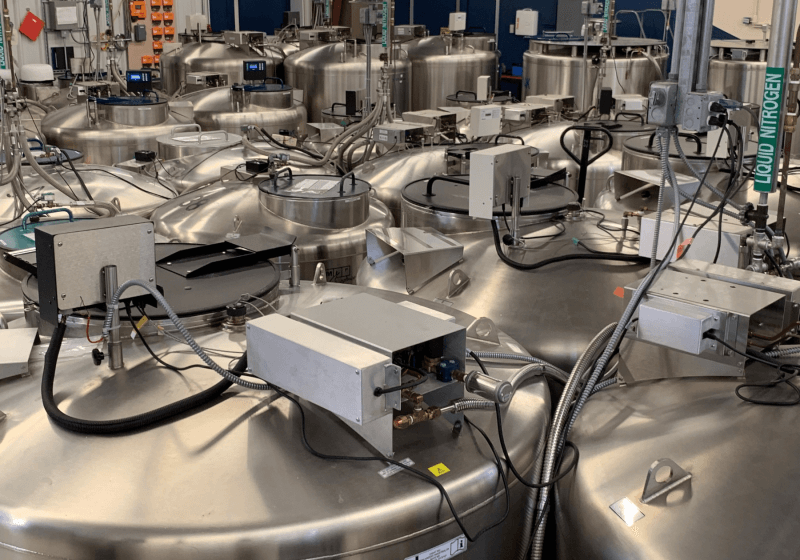A new cryopreservation bank offers customers the chance to stash away their T cells for use in future cancer treatments. Using a similar model to cord blood banks, the startup Cell Vault announced that it has already raised $1 million from Silicon Valley investors in an initial round of funding. The field of T cell–based cancer therapies has rapidly blossomed in recent years, but at this point, scientists doubt the utility of stowing healthy T cells in a freezer, just in case.
Cell Vault proposes that, once frozen, customers’ T cells can be readily available for adoptive cell transfer, an emerging form of cancer treatment.
…
The International Society for Cell and Gene Therapy (ISCT) has taken a hard stance. On August 7, the organization issued a statement objecting to the marketing of “unproven T-cell preservation services.” The release presented a list of technical, regulatory, and ethical concerns surrounding third-party T cell banks, including several voiced by ISCT President-Elect Bruce Levine.
…
“I’m personally concerned about patients, and even healthy donors,” Levine tells The Scientist. “This company, other companies, they cannot point to an example of a company with a commercial product that accepts what they collect.”
Read full, original post: Immune Cell Bank Bets on Future CAR T Success































